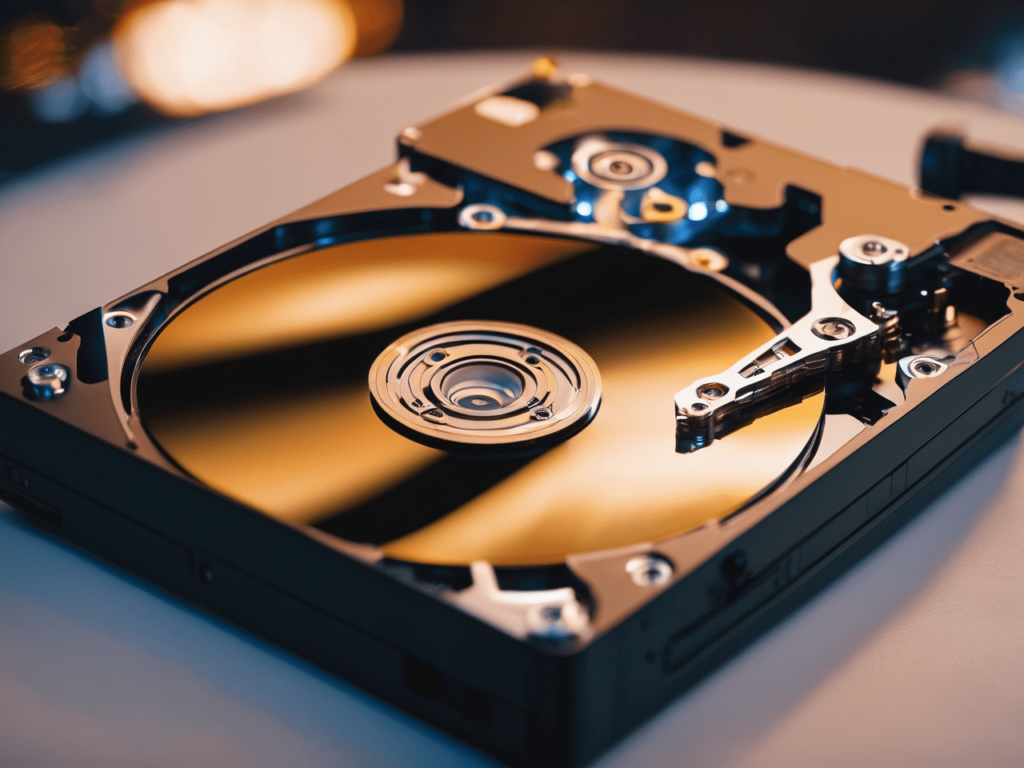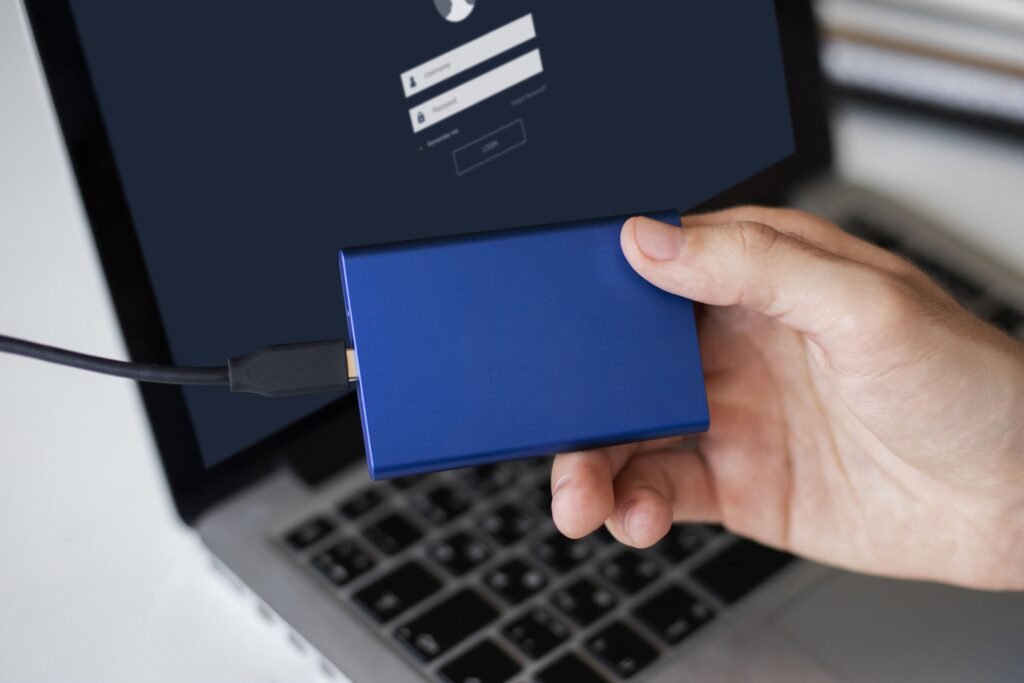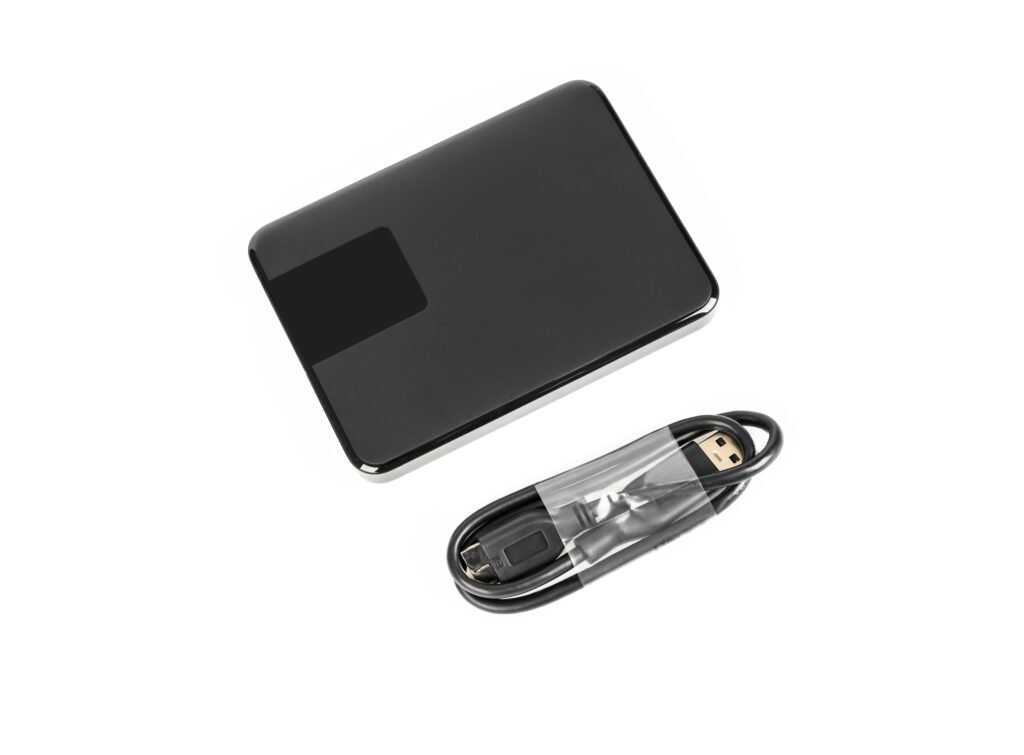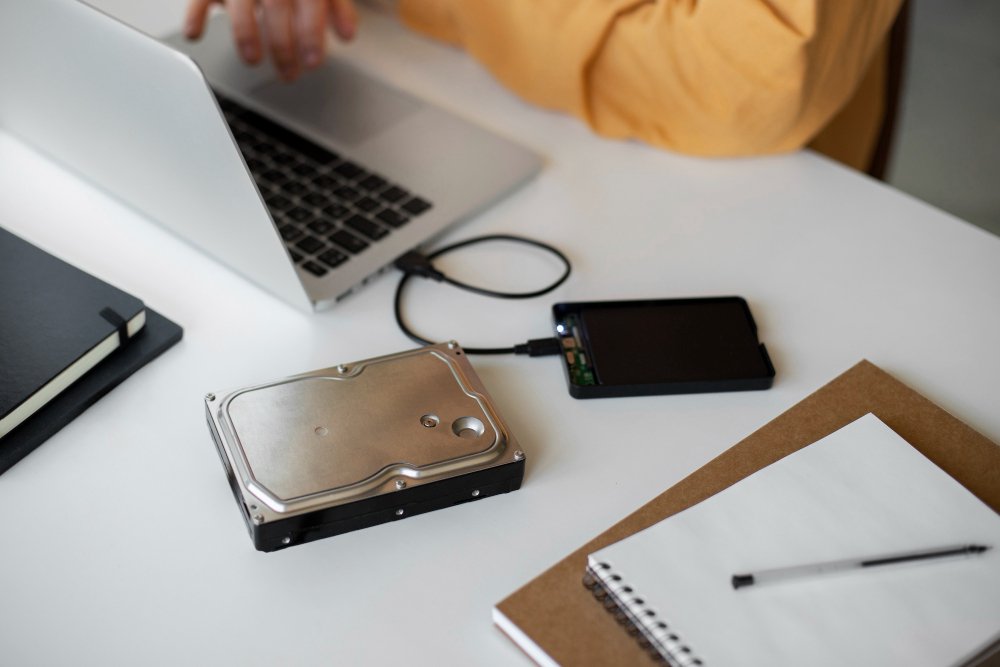“External hard disks provide a small-but-powerful way to increase storage capacity over what your device is capable of.” Whether it’s images, movies, documents, or apps, these portable drives offer safe storage and easy access to your data. Their high-capacity options, which span gigabytes to terabytes, enable them to meet a wide range of storage requirements, from home video libraries to business archives. External hard drives with plug-and-play capability, cross-OS compatibility, and quick data transfer rates provide lag-free communication and effective file organization. Accept the flexibility to travel with your digital world in tow, supported by dependable and adaptable storage options.”
Table of Contents
The Ultimate Guide to External Hard Disks: Everything You Need to Know
In today’s digital age, where data is king, having ample storage space is essential. External hard disks have emerged as indispensable tools for individuals and businesses alike, offering convenience, flexibility, and reliability in managing vast amounts of data. In this comprehensive guide, we will explore everything you need to know about external hard disks, from their functionality to their benefits and usage scenarios.
Unlocking the Power of External Hard Disks: A Comprehensive Overview

External hard disks serve as portable repositories for your digital files, allowing you to access and transfer data across multiple devices with ease. Unlike internal storage solutions, which are confined within a device, external hard disks offer the flexibility to expand storage capacity and facilitate data mobility. Whether you’re a student, professional, or casual user, external hard disks provide a versatile storage solution tailored to your specific needs.
External Hard Disks Demystified: A Beginner's Guide
If you’re new to external hard disks, you may have questions about what they are and how they work. Simply put, an external hard disk is a portable storage device that connects to a computer or other devices via USB, providing additional storage capacity for storing files and data. External hard disks come in various shapes and sizes, ranging from compact, pocket-sized drives to larger, desktop-style enclosures. They are compatible with a wide range of devices, including computers, laptops, gaming consoles, and media players.
Choosing the Right External Hard Disk: Factors to Consider
With a plethora of options available in the market, selecting the perfect external hard disk can be overwhelming. To help you make an informed decision, consider the following factors:
- Storage Capacity: Determine how much storage space you need based on your usage requirements. External hard disks are available in various capacities, ranging from a few gigabytes to several terabytes.
- Connectivity Options: Consider the connectivity options supported by the external hard disk, such as USB 3.0, USB-C, Thunderbolt, and eSATA. Choose a device that is compatible with your existing hardware and offers fast data transfer speeds.
- Speed and Performance: Look for external hard disks with high-speed interfaces and fast rotational speeds (measured in revolutions per minute, or RPM) for optimal performance, especially when dealing with large files or multimedia content.
- Durability and Reliability: Invest in a durable and reliable external hard disk that can withstand everyday wear and tear, as well as accidental drops and shocks. Solid-state drives (SSDs) are generally more durable than traditional hard disk drives (HDDs) due to their lack of moving parts.
- Security Features: Prioritize data security by choosing an external hard disk with built-in encryption and password protection features to safeguard your sensitive information from unauthorized access.
Maximizing Efficiency with External Hard Disks: Tips and Tricks
Now that you’ve chosen the right external hard disk for your needs, it’s time to make the most out of it. Here are some tips and tricks to help you maximize efficiency and streamline your data management workflow:

- Organize Your Files: Create a logical folder structure and organize your files systematically to facilitate easy navigation and retrieval.
- Backup Regularly: Establish a backup routine to ensure that your data is safe and secure. Schedule automated backups or manually copy important files to your external hard disk on a regular basis.
- Use Cloud Storage in Conjunction: Consider using cloud storage services in conjunction with your external hard disk for added redundancy and accessibility. Sync your files to the cloud for remote access and backup purposes.
- Optimize Performance: Periodically defragment and optimize your external hard disk to improve performance and maximize storage space efficiency.
- Secure Your Data: Enable encryption and password protection features to secure your data against unauthorized access. Consider using encryption software for an extra layer of security.
Exploring the Benefits of External Hard Disks for Data Storage
External hard disks offer numerous benefits for data storage, including:
- Scalability: External hard disks allow you to expand your storage capacity as needed, making them ideal for storing large files and multimedia content.
- Portability: External hard disks are compact and lightweight, making them easy to carry around and transport between different locations.
- Data Redundancy: External hard disks provide a reliable backup solution for your data, reducing the risk of data loss due to hardware failure or other unforeseen circumstances.
- Cross-Platform Compatibility: External hard disks are compatible with a wide range of devices and operating systems, making them versatile storage solutions for both Mac and PC users.
- Cost-Effectiveness: External hard disks offer a cost-effective storage solution compared to cloud storage services or upgrading internal storage components.

The Future of Storage: External Hard Disks in the Digital Age
As digital storage demands continue to grow, external hard disks are poised to play a crucial role in shaping the future of storage solutions. Advancements in technology are driving innovations in external hard disk design and performance, with manufacturers continually pushing the boundaries of storage capacity, speed, and reliability. With the rise of cloud computing and remote data access, external hard disks will remain relevant by providing localized storage solutions for individuals and businesses alike.
External Hard Disks vs. Internal Storage: Which Is Right for You?
When deciding between external hard disks and internal storage solutions, consider the following factors:

- Portability: External hard disks offer the advantage of portability, allowing you to carry your data with you wherever you go. Internal storage solutions, on the other hand, are confined within a device and are not easily portable.
- Expandability: External hard disks provide the flexibility to expand your storage capacity as needed, whereas internal storage solutions may require upgrading or replacing existing components to increase capacity.
- Accessibility: External hard disks allow you to easily transfer data between devices, whereas internal storage solutions are limited to the device they are installed in.
- Security: External hard disks often come with built-in security features such as encryption and password protection to safeguard your data, whereas internal storage solutions may require additional security measures to protect sensitive information.
Ultimately, the choice between external hard disks and internal storage solutions depends on your specific needs and preferences. Consider factors such as portability, expandability, accessibility, and security when making your decision.
Data Security Matters: How External Hard Disks Keep Your Information Safe
Data security is paramount in today’s digital landscape, and external hard disks play a crucial role in protecting your information from unauthorized access. Many external hard disks come equipped with advanced security features such as encryption, password protection, and biometric authentication to safeguard your sensitive data. By encrypting your data and setting up strong passwords, you can ensure that your information remains secure even in the event of theft or loss. Additionally, some external hard disks offer remote wipe capabilities, allowing you to erase all data stored on the device remotely in case it falls into the wrong hands.

External Hard Disks: Expanding Storage Options for Every Need
Whether you’re a student, professional, or casual user, external hard disks offer storage solutions tailored to your specific needs. From compact, pocket-sized drives for on-the-go storage to high-capacity desktop enclosures for archival purposes, there is an external hard disk available to suit every need and budget. With their versatility, portability, and reliability, external hard disks have become indispensable tools for managing and storing digital data in today’s interconnected world.
FAQs about External Hard Disks
Q: What is an external hard disk?
A: An external hard disk is a portable storage device that connects to a computer or other devices via USB, providing additional storage capacity for storing files and data.
Q: What are the advantages of using an external hard disk?
A: Some advantages of using an external hard disk include increased storage capacity, portability, and the ability to easily transfer data between devices.
Q: How do I choose the right external hard disk for my needs?
A: Consider factors such as storage capacity, speed, connectivity options, durability, and security features when choosing an external hard disk.
Q: Are external hard disks secure?
A: External hard disks often come with security features such as encryption and password protection to keep your data secure.
Q: Can I use an external hard disk with multiple devices?
A: Yes, external hard disks can typically be used with multiple devices, including computers, laptops, and gaming consoles, as long as they have compatible connectivity ports.
Q: How do I maintain and care for my external hard disk?
A: To ensure optimal performance and longevity, handle your external hard disk with care, avoid physical damage, and regularly back up your data. Additionally, keep your device firmware and software up to date to prevent security vulnerabilities.


